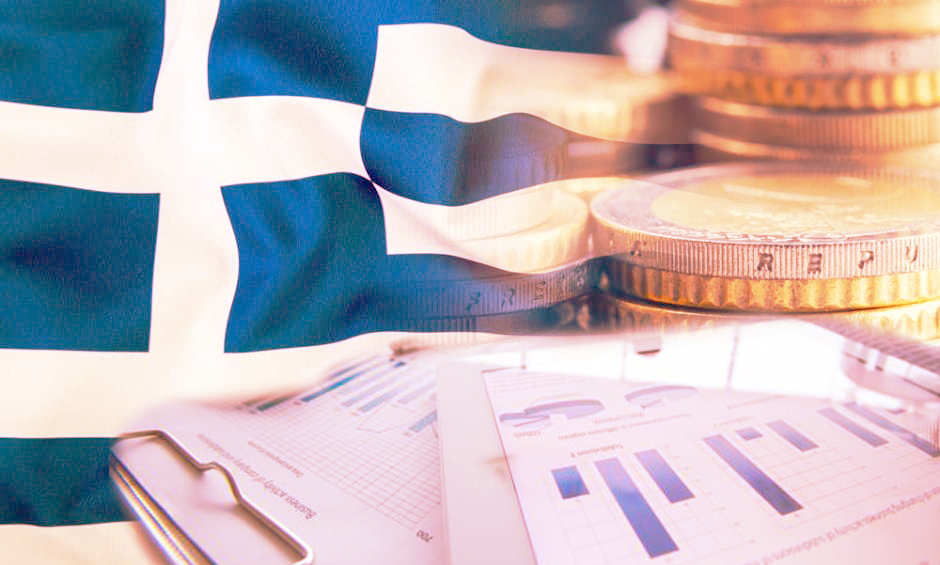
With the aim of borrowing 2.5-3.5 billion euros, Greece is entering the markets with a premiere for 2022 being the issuance of a new 10-year bond. The way was opened by the upgrade of the prospects by the rating agency Fitch, but also the smaller (by 2 billion euro) deficit for 2021. The title expires in 2032 and the book of offers opens today where the issue will be run by the six contracting banks – Barclays, Commerzbank, Eurobank, Morgan Stanley, Nomura and Societe Generale.
The next move
With the strong support of the European Central Bank as an ally, the cost of borrowing is at very low levels, where during the issuance of the 10-year bond last year in 2021 the interest rate was at the historically low of 0.8%. Analysts see that this year the cost of borrowing for the Eurozone countries will be comparatively higher mainly due to inflation. The next move of the Greek government is expected in the spring as analysts expect a new 5-year follow-up in March to raise 1.5 billion euros, while the first quarter will end with the re-opening of the 30-year bond to raise 1 billion euros. For this year, the information shows that Greece will borrow 10 – 12 billion euros with the issuance of short-term and long-term bonds, while at the same time the Public Debt Management Agency (P.D.M.A.) is preparing the first “green” bond in the first half of 2022.
The Ministry of Finance has planned a roadmap with the main goal of getting out of enhanced supervision, perhaps even earlier than June, the early repayment of loans of the first Memorandum – IMF (about 7 billion euros), the recovery of the investment level by 2023 and at the same time to implement effectively the plan from the Recovery Fund and the gradual return to surpluses with simultaneous support to vulnerable households and businesses. The main vehicle is the forecast for strong cumulative growth of 11.7% in the two years 2021-2022, the relatively high cash reserves amounting to over 32 billion euros and the positive course of the state budget so far, exceeding the revenue targets.
Through the European Central Bank’s bond-buying program, in which Greek bonds exceptionally participate in the absence of an investment grade, the ECB has already purchased € 35 billion in securities. In 2021, Greece entered the markets with 5-year, 10-year and 30-year bonds, raising a total of over 15 billion Euros through the private placement of the 30-year bond. In particular, in January 2021, Greece proceeded to reissue a 30-year bond with a nominal value of 1.4 billion euros and a settlement value of 2.027 billion euros with a private placement. This was followed in February 2021 by a syndicated issue of a ten-year bond of 3,500 billion euros, with a fixed interest rate of 0.75% and in March 2021, a syndicated issue of a thirty-year bond of 2.5 billion euros, with a fixed interest rate of 1.875%. In May 2021 syndicated issuance of a five-year bond of 3 billion euros with zero interest rate and in June 2021 followed the syndicated reissue of the ten-year bond of 2.5 billion euros with a yield of 0.888%. In September 2021, the five-year and thirty-year bonds of 1.5 and 1 billion euros were reissued, respectively, with yields of 0.020% and 1.675%.
Ratings
It is recalled that in 2021 S&P has upgraded the country to BB, while on the same scale BB is the rating of Fitch, which upgraded the prospects of the Greek economy, in January 2022. Moody’s rating is lower, at Ba3 with stable outlook. Last fall was very positive as the rating agency DBRS Morningstar upgraded Greece’s credit rating by one notch to BB from BB (Low), with positive outlook. It was a week before the upgrade by “Scope Ratings” (BB + from BB) which gave a vote of confidence in the Greek economy. It is recalled in the previous appointment Moody’s had observed “silent fish”, ie in that of May, with the assessment of Greece by the house has not changed since November 2020 when it had upgraded by one step, from B1, with positive prospects.
Latest News

Airbnb: Greece’s Short-Term Rentals Dip in March Amid Easter Shift
Data from analytics firm AirDNA shows that average occupancy for short-term rentals dropped to 45% in March, down from 49% the same month last year.

Easter Week in Greece: Holy Friday in Orthodoxy Today
At the Vespers service on Friday evening the image of Christ is removed from the Cross and wrapped in a white cloth

Meloni and Trump Meet in Washington, Vow to Strengthen Western Ties
“I am 100% sure there will be no problems reaching a deal on tariffs with the EU—none whatsoever,” Trump stressed.

ECB Cuts Interest Rates by 25 Basis Points in Expected Move
The ECB’s Governing Council opted to lower the deposit facility rate—the benchmark for signaling monetary policy direction—citing an updated assessment of inflation prospects, the dynamics of underlying inflation, and the strength of monetary policy transmission.

Current Account Deficit Fell by €573.2ml Feb. 2025: BoG
The improvement of Greece’s current account was mainly attributed to a more robust balance of goods and, to a lesser extent, an improved primary income account

Hellenic Food Authority Issues Food Safety Tips for Easter
Food safety tips on how to make sure your lamb has been properly inspected and your eggs stay fresh.

Greek Kiwifruit Exports Smash 200,000-Ton Mark, Setting New Record
According to data by the Association of Greek Fruit, Vegetable and Juice Exporters, Incofruit Hellas, between September 1, 2024, and April 17, 2025, kiwifruit exports increased by 14.2%.

Easter Tourism Boom: Greece Sees 18.3% Surge in Hotel Bookings
Among foreign markets, Israel has emerged as the biggest growth driver, with hotel bookings more than doubling—up 178.5% year-on-year.

Greece to Launch Fast-Track Tender for Offshore Hydrocarbon Exploration
Last week, Papastavrou signed the acceptance of interest for the two Cretan blocks, while similar decisions regarding the two Ionian Sea blocks were signed by his predecessor

American-Hellenic Chamber of Commerce to Open Washington D.C. Branch
AmCham's new office aims aims to deepen U.S.-Greece economic ties and promote investment and innovation between the two countries








![Πλημμύρες: Σημειώθηκαν σε επίπεδα ρεκόρ στην Ευρώπη το 2024 [γράφημα]](https://www.ot.gr/wp-content/uploads/2025/04/FLOOD_HUNGRY-90x90.jpg)




![Airbnb: Πτωτικά κινήθηκε η ζήτηση τον Μάρτιο – Τι δείχνουν τα στοιχεία [γράφημα]](https://www.ot.gr/wp-content/uploads/2024/07/airbnb-gba8e58468_1280-1-90x90.jpg)












![ΙΟΒΕ: Πώς το δημογραφικό υπονομεύει την ανάπτυξη – Τι συμβαίνει στις ελληνικές περιφέρειες [γραφήματα]](https://www.ot.gr/wp-content/uploads/2025/04/dimografiko-600x375.jpg)












![Airbnb: Πτωτικά κινήθηκε η ζήτηση τον Μάρτιο – Τι δείχνουν τα στοιχεία [γράφημα]](https://www.ot.gr/wp-content/uploads/2024/07/airbnb-gba8e58468_1280-1-600x500.jpg)


 Αριθμός Πιστοποίησης
Αριθμός Πιστοποίησης